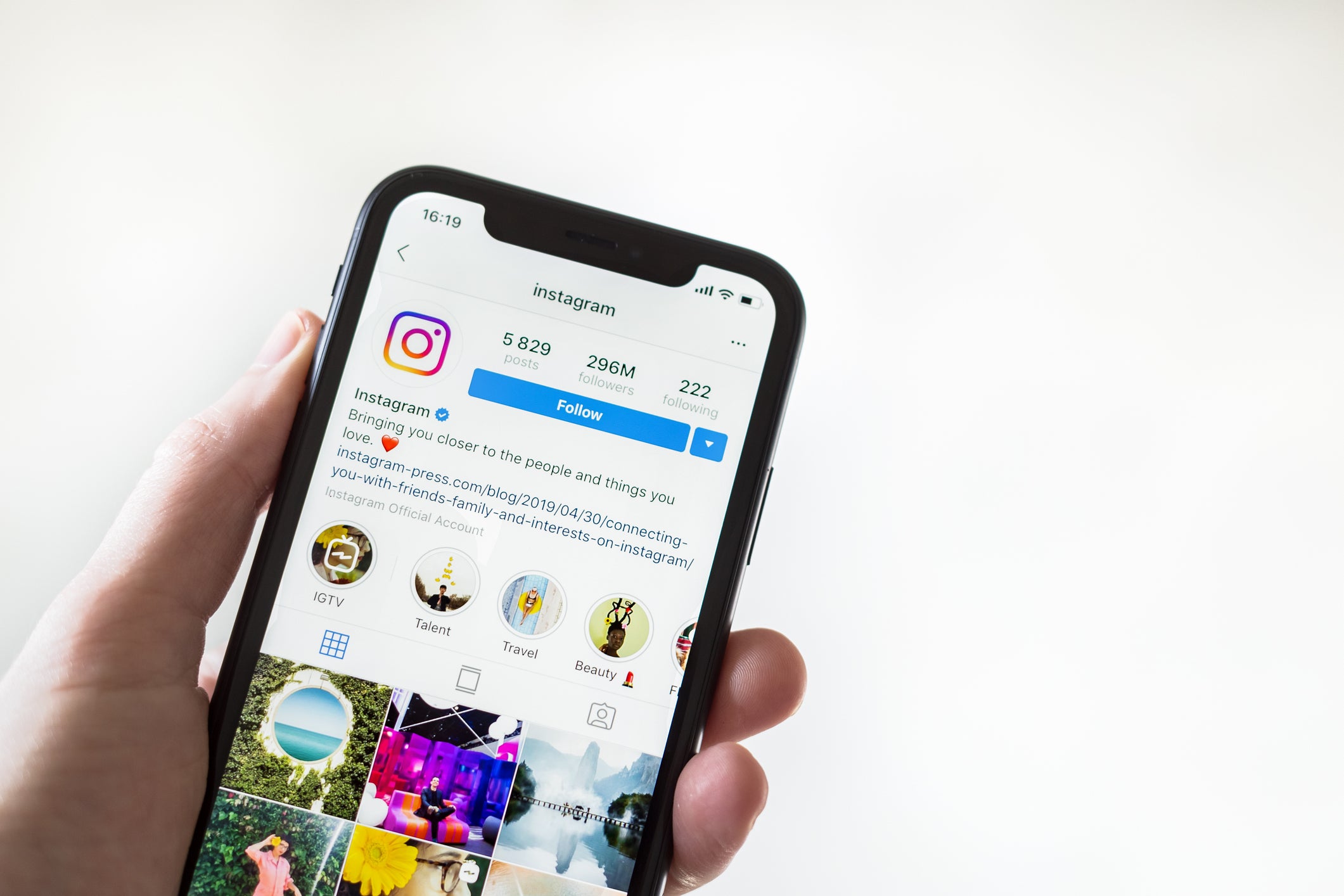Nobody likes to argue with friends – especially not when the issue on the table is something as inane as social media. Surely it’s below all of us to get into a spat over likes, tagged pics, and DM slides. It’s just Instagram: a filtered vessel through which we post a curated version of our lives that, outside of our smartphones, means almost nothing. Well, in today’s overly documented and overly online culture, where anyone can go instantly viral, it’s a little more complicated than that.
May*, 52, discovered this firsthand after a recent night out with her 18-year-old daughter and 37-year-old sister. “It had been really hot, so we were super sweaty and all of our makeup had basically disappeared,” she recalls. “We decided to have one last drink at our hotel, and my sister wanted a photo. I reluctantly agreed but asked her not to post it anywhere as I looked awful.” The next morning, May’s sister had posted the photo to her Instagram Stories. “I couldn’t believe it. She had been behind the lens, so there was no tired, sweaty image of her. Just me looking worse for wear. I told her to take it down; she shrugged and said it was no big deal.”
This is a surprisingly common disagreement, and it’s one I’ve found myself in more than once. There have been times when I’ve spotted photos of me I’ve hated, only to feel too embarrassed to ask friends to delete them; is anything less cool than caring about your social media presence? Often, the gripes are minor and bound up in my own insipid insecurities that I resent giving any airtime to: a bit of lighting hitting my nose awkwardly here, the way my arm appears to be bulging there. Silly stuff, mostly. Over the years I’ve developed a tactic: friends can post whatever they like of me on their platforms; if I don’t like it, I won’t share it on mine.
But that hasn’t stopped arguments from spooling out elsewhere. What used to be a hard line reserved for children (few people would share a photograph of someone’s else’s kid without permission) is now something that affects us all, given how much wider, and more insidious, internet culture has become. I’ve had friends ask me to never post photos of them online, as well as to take them down, even after I’ve asked for their consent. While some of us are sharing more of our lives publicly, it seems as if privacy has become an increasingly valuable – and surprisingly rare – commodity.
“The distress people feel isn’t vanity about looking bad,” explains psychologist Dr Max Blumberg, who is a chartered member of the British Psychological Society. “It’s a genuine psychological response to losing control over how they’re presented to the world. Brain imaging studies show that when someone posts your photo without permission, it activates the same neural pain centres that respond to physical injury or social rejection.”

This reaction to non-consensual photo sharing is now a recognised psychological condition, though some people are more likely to be affected by it than others. “The most vulnerable groups include introverts, who prefer controlled interactions and find unexpected photos disrupt their social management strategies,” explains Dr Blumberg. “People with social anxiety spend 50+ extra minutes daily on social media trying to control their image. Then there are the lurkers: heavy browsers who post little, and experience privacy fatigue from constantly managing boundaries. When thrust into unwanted visibility through others’ posts, it’s psychologically destabilising.”
For May, her views around what should and shouldn’t be posted of her have changed with age. “I feel more sensitive to things like these since I passed 50,” she says. “Unless I’m ‘camera ready’, my face and hair doesn’t naturally look like it did when I was 30.” Personally, I’m just incredibly picky about the photos I like and don’t like being posted of me online. It’s not that I want to be seen in one specific way, or even that I care about my image being controlled; it’s more that I just don’t like how I look in some photos. So why would I want them shared with the world?
To some, all this might seem frivolous: who cares what you look like online? Isn’t taking it seriously just a sign that you’re too obsessed with your own image? Do we all just need to get a grip? “Those who have more of an issue with this might have very valid reasons beyond the fact that it might have violated their privacy,” points out psychologist Dr Linda Kaye, also a chartered member of the British Psychological Society. “For example, posting photos online can inadvertently reveal information about people that might comprise their physical safety, like if location information is revealed.” There are other, more threatening circumstances, too. “In some cases, someone who avoids sharing photos may be doing so to avoid being found by an abusive partner or family member, or to avoid being stalked,” adds Dr Kaye. “In these cases, they would quite rightly have issues with other people violating their safety.”
Most of the time, someone’s approach to social media is likely to inform how they respond to other people’s. It tends to be my offline friends, for example, who have more of an issue with photos being shared of them. Meanwhile, those of us who are hyper-online (hello) tend to be more lenient. But there are serious, and occasionally legal, implications to consider. For example, the Online Safety Act now rules that the non-consensual sharing of intimate images is a priority offence. And in some cases, like when a photo or video of a stranger goes unexpectedly viral (yes, I’m talking about the Coldplay affair), there can be serious consequences far beyond our own lives.
The bottom line? It should probably become new social etiquette that we ask for permission before posting images of anyone else. And yes, that should be the case regardless of how large or small your online platform happens to be. “This represents healthy social norm formation, not arbitrary restriction,” adds Dr Blumberg. “Research shows that explicit consent conversations strengthen, rather than weaken, relationships by demonstrating genuine care for others’ wellbeing. Asking if you can post this has become an act of friendship in our hyperconnected age.”
It also means everyone can simply relax in one another’s company without the lingering fear of suddenly becoming a meme. Surely that’s a basic human right, and one we all deserve.
*Name has been changed






